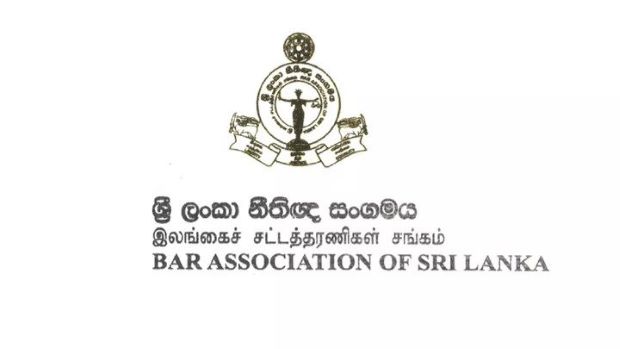COLOMBO – The Bar Association of Sri Lanka (BASL) on Saturday (27) condemned the government’s efforts to ‘illegally subvert the course of justice’ in relation to the Supreme Court interim order preventing Deshabandu Tennakoon from functioning as Inspector General of Police (IGP).
“The claim that the Supreme Court does not have the power to call into question appointments made by the President which are approved by the Constitutional Council is, in the view of the BASL, totally untenable,” the Association said in a statement.
Sri Lanka’s Supreme Court issued an interim order suspending Tennakoon from his office and suggesting that an acting appointment be made. The Court gave made the order upon granting leave to proceed for nine fundamental rights petitions filed against Tennakoon’s appointment as IGP.
However, Tennakoon remains in office, as there are no legal provisions for President Ranil Wickremesinghe to make an acting appointment now that polls have been declared, Prime Minister Dinesh Gunawardana said.
The BASL statement in full:
The Bar Association of Sri Lanka (BASL) strongly condemns the efforts of the Government to subvert the course of justice in relation to the interim orders given by the Supreme Court in the cases relating to the appointment of the Inspector General of Police, Mr Deshabandu Tennakoon.
In the said cases, a three-judge bench of the Supreme Court heard all parties including the Attorney General and counsel for Mr. Tennekoon and delivered its order granting leave to proceed. The Court also issued an interim order restraining Mr. Tennekoon from exercising the duties, functions and powers of the Inspector General of Police until the final determination of the applications. The said cases had been fixed for hearing on 11th November 2024, with the consent of all parties including the Attorney General and all counsel.
The claim that the Supreme Court does not have the power to call into question appointments made by the President which are approved by the Constitutional Council is, in the view of the BASL, totally untenable.
The decisions of the Constitutional Council are clearly amenable to the Fundamental Rights Jurisdiction of the Supreme Court (as per Article 411 of the Constitution). It is equally clear that following the 19th Amendment to the Constitution the exercise of powers by the President, except his power to declare war and peace, are subject to the Fundamental Rights Jurisdiction of the Supreme Court (as per Article 35 of the Constitution).
It is in the exercise of the said powers that the Supreme Court has previously quashed the grant of pardons by the President, quashed the dissolution of Parliament and held against the President who was in office during the Easter Sunday attacks.
In the case of Edward Siva V Dr Shirani Bandaranaike (1997(1) SLR 92) a seven-judge bench of the Supreme Court held as follows, quoting with approval the decision of the Supreme Court in Bandara v Premachandra [1994(1) SLR 301].
“In common with Courts in other democracies founded on the Rule of Law, this Court has consistently recognised that powers of appointment are not absolute:
“There are no absolute or unfettered discretions in public law; discretions are conferred on public functionaries in trust for the public, to be used for the public good, and the propriety of the exercise of such discretions is to be judged by reference to the purposes for which they were so entrusted.”
The decisions of the Supreme Court cannot be overruled by any other forum; neither the Prime Minister nor the Speaker have any authority to override the decisions of the Courts.
It is essential for the Rule of Law and the independence of the judiciary that the executive and legislature respect the judgments of the courts of the land. Failure to honour the decisions of the courts of the land by the Government will result in a loss of public confidence in the administration of justice and will seriously imperil democracy.
The BASL expresses its fullest confidence in the judiciary of Sri Lanka including the Supreme Court and will stand by the judiciary in order to ensure that its integrity is protected at this critical hour.
-economynext.com



Comments are closed, but trackbacks and pingbacks are open.